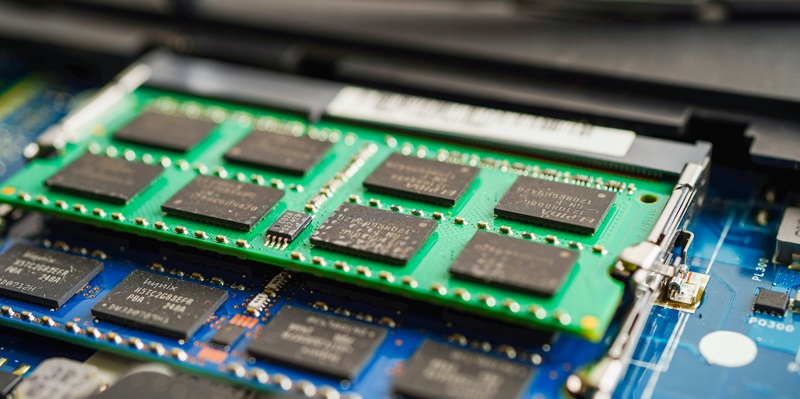Rambus, a leading technology solutions company, has unveiled its highly anticipated 4th Gen Registering Clock Driver (RCD) for DDR5 memory. The new RCD offers groundbreaking support for data centers, with an impressive capability of up to 7200 MT/s. This innovation is set to provide a significant bandwidth uplift over its first-generation counterparts, delivering enhanced performance and efficiency for upcoming data center CPUs and server platforms.
Sampling and expected utilization
The 4th Gen RCD has already entered the sampling phase with Rambus customers, showcasing its readiness for adoption in the latest data center technologies. It is expected to find widespread utilization in the highly anticipated server platforms, namely Intel’s Granite Rapids and AMD’s Turin. These platforms, slated for release in the coming months, will greatly benefit from the enhanced DDR5 memory modules, thereby elevating overall server performance to new heights.
Performance benchmark set by Rambus Gen4 RCD
With the introduction of the Rambus Gen4 RCD, a new performance benchmark has been set in the realm of memory technology. By achieving an incredible data rate of 7200 MT/s, this cutting-edge RCD boosts memory bandwidth by an impressive 50% compared to current DDR5 modules. Such a significant improvement guarantees faster data transfer rates and heightened efficiency, enabling data centers to keep pace with the exponentially increasing demands of modern workloads.
Support for advanced workloads
One of the key advantages of the Gen4 RCD is its ability to meet the demanding requirements of generative AI and other advanced data center workloads. As AI algorithms become more complex and computationally intensive, data centers must leverage high-performance memory solutions that can effectively accommodate these workloads. The Gen4 RCD from Rambus provides the necessary infrastructure to scale up memory capabilities and cater to the exponential growth of AI-driven technologies.
Commitment to Innovation
Rambus has long been committed to providing industry-leading products that exceed market needs and seamlessly support customer requirements. With over three decades of extensive experience in memory technology, Rambus understands the importance of staying ahead of the curve. By introducing the Gen4 RCD, Rambus solidifies its position as an industry leader dedicated to delivering cutting-edge solutions that unlock the true potential of server platforms.
Importance of DDR5 Memory Interface Chips
The success of high-performance servers is heavily reliant on the efficiency and reliability of memory interface chips. Alongside the RCD, Rambus offers a comprehensive range of DDR5 memory interface chips, including the Signal Pin Data (SPD) Hub and Temperature Sensors. These components, working in harmony with the RCD, provide crucial enhancements to signal integrity and power integrity, ensuring optimal performance and stability for data center server Registered Dual In-Line Memory Modules (RDIMMs).
Expertise and Experience
With over 30 years of experience in the memory industry, Rambus brings a wealth of knowledge and expertise to the table. The company’s deep understanding of signal integrity and power integrity, coupled with its relentless pursuit of innovation, enables the delivery of superior performance and reliability in data center server RDIMMs. This rich heritage positions Rambus as a trusted partner for data center operators seeking to maximize the efficiency of their infrastructure.
Availability and Future Outlook
The 7200 MT/s DDR5 memory RCD from Rambus is now readily available, offering data center operators the opportunity to harness the immense power and efficiency of this groundbreaking technology. As the demand for memory in data centers continues to surge, driven by emerging technologies such as generative AI, the increased memory bandwidth provided by the Gen4 RCD will play a crucial role in meeting these escalating requirements. With ongoing investments in research and development, Rambus remains at the forefront of memory technology, ensuring compatibility and performance for future server platforms.
In conclusion, Rambus’ 4th Gen RCD for DDR5 memory represents a significant leap forward in data center performance and efficiency. With its exceptional data rate and increased memory bandwidth, this innovation is set to transform the capabilities of upcoming data center CPUs and server platforms. As the demands of generative AI and advanced workloads continue to grow, Rambus continues to deliver groundbreaking solutions that address these challenges head-on. As a global technology leader, Rambus remains committed to pushing the boundaries of memory technology, enabling data centers to harness the full potential of their infrastructure.

